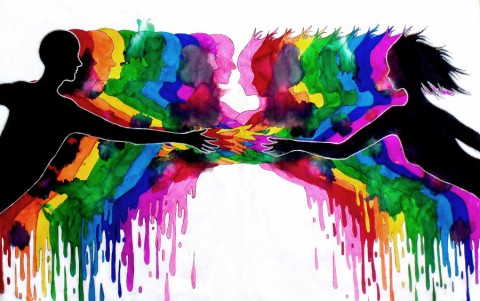Facing Race
November 19, 2012 Leave a commentA group of us from IISC attending Facing Race, the Applied Research Center’s bi-annual conference. For me (and many others, judging by the #FacingRace Twitter stream), it was an energizing, affirming and enlightening experience. Over the next few days, we will offer details about what we heard and learned. I want to begin with a few big picture ideas.
Collaboration Matters. Many of the speakers and workshop leaders pointed to the need to work together across our differences (race, age, sexual orientation and more) if we are going to make and sustain progress toward racial justice.
We have to think in systems. Over and over, speakers pointed to the need to overcome fragmentation in our thinking about both causes and solutions. The U.S. culture emphasizes specialization and that is often reflected in progressive movements, so that, for example, folks working to abolish the death penalty may not see efforts to end mass incarceration as related to their work. We’ll never crack systems of oppression if we don’t think in systemic terms and connect our issues and struggles.
The personal is political; the work is internal and external. Junot Diaz and many others called on us to recognize that the work of racial justice is as much an inward journey as an outward struggle—an inward journey to resist and undo the damage done to us and by us because of the internalized messages about who is worthy and who deserves our love. With stories about her own (bi-racial) children’s different takes on identity, Maya Wiley reminded us about the complexity of constructing racial identity and the compassion with which we need to view one another’s constructions.
Love has everything to do with it. Diaz also urged us to cultivate the Marti Mind. In 1895, José Marti said, “as much love as I have for my group, I have for every other group.” Only that kind of love—the love that creates no “other,” only an “us,”—we can hope to see justice emerge.
Engagement is essential to progress. Jose Antonio Vargas challenged us to engage with people who don’t share our analysis or commitment to racial justice. Bringing the message in language that others understand—including the humor of comedians like Negin Farsad—and building bridges to folks who haven’t embraced racial justice is essential work to make progress.
We need to engage the whole person in the work. Workshops and plenary sessions on storytelling, the arts, theatre of the oppressed and faith and spirituality, to name a few, reminded us that we and the people we are attempting to organize and influence are embodied people, with left and right brains, hands and hearts, bodies and spirits. We had great opportunities to share ways to engage the fullness of our shared humanity in the work of racial justice.
I left the conference greatly affirmed about IISC’s learning journey over the past many years to infuse networks and systems thinking; race, class and power; and love as a force for social change into our collaborative practices. I’m more convinced than ever that we’re on the right path. And, it left me wondering how we can create even crisper processes and more effective tools that support the work of racial justice.
What did you learn or re-learn at Facing Race? What questions did it raise for you?

No Comments
Thank you, Cynthia, for this Informative and affirming summary! It all connects.
Connected indeed!
Thanks Cynthia for this great post. Facing Race is also about Facing Your Self, and most people do not want to dwell into their inner self. The task is challenging but the results are incredible.
Thanks Cynthia for these highlights. I wish I could have been there.
It’s great to hear about the conference, Cynthia! We hope to have a brown bag at BPHC soon to talk about it and what it means for our work. It’s inspiring to hear about your takeaways and I look forward to hearing that of others as the processing continues!
We’re also planning a post-conference learning session and will invite folks from Boston who were there. More info soon.
Cynthia, thank you for this great summary of the high points of the conference. I’d love to hear more. Your first two points about the need for collaboration across differences and taking a systems perspective to see how all these issues connect reminded me of this graphic from Occupy NYC – with the theme “All Our Grievances are Connected”
http://www.dailykos.com/story/2011/11/25/1039828/-Occupy-2-0-Occupy-the-Economy-with-meme-Our-Debt-is-Their-Wealth
There is so much potential in understanding how these issues relate, and where I get inspired…in inventing solutions and projects that address multiple issues at once. Here’s one of my favorite examples – youth tree planting project in Oakland that created community healing, ecological restoration, job training, and youth empowerment:
http://unitedrootsoakland.org/united-roots-premiers-trees-4-life-documentary-film-on-june-28th-2012/
Thanks for the resources Beth. I look forward to checking them out. Several of my colleagues and I are going to be writing more posts about the conference over the next few weeks. I’m thinking in particular about Junot Diaz’s keynote. He made such a clear connection between the personal and the political when he talked about the ways in which the “pigmentocracy” operated in his own family, and the ways he perpetuated it, injuring his sister in the process. I think understanding and owning our privileges is a critical first step in taking responsibility for creating a world where identity does not drive destiny, resources are fairly and sustainably distributed, and everyone can thrive. Here’s to more progress in that direction!